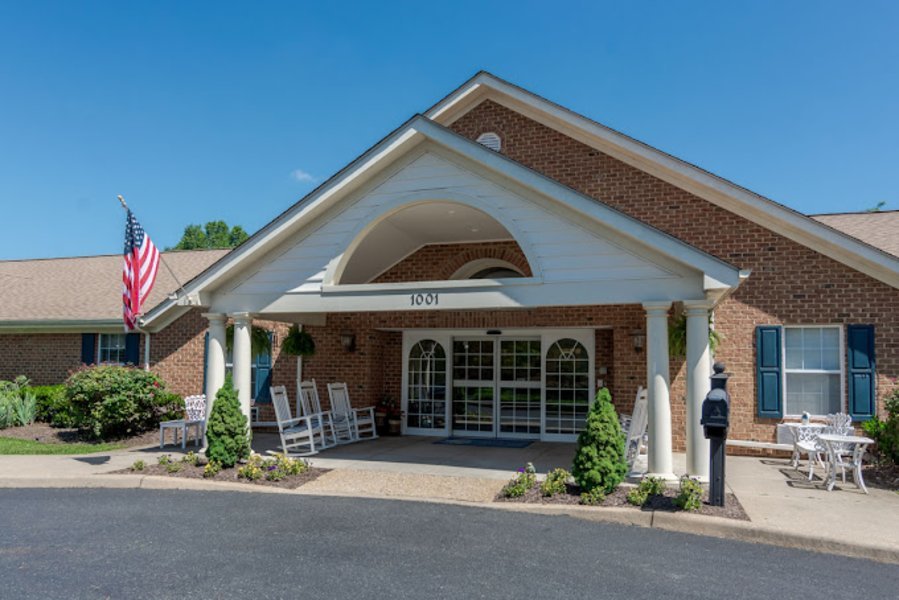Federal data shows one-third of American seniors spend more than 30% of monthly income on housing costs. The numbers highlight a growing affordability crisis for older adults living on fixed incomes.
Housing assistance programs offer various solutions through Section 8 vouchers, Section 202 supportive housing, and private sector alternatives. Each program maintains specific eligibility requirements and application processes for seniors seeking affordable housing options.
The U.S. Department of Housing and Urban Development (HUD) reports increasing demand for income-based senior housing across major metropolitan areas. Local housing authorities manage waiting lists that can stretch from several months to multiple years, depending on location and availability.
This guide examines key housing programs, eligibility criteria, and application strategies. Understanding these options helps seniors navigate the complex process of securing affordable housing that meets their needs and income levels.
Income-Based Housing Programs for Seniors
HUD data shows three major housing assistance programs serve low-income seniors across the United States. Section 202 Supportive Housing provides specialized communities for adults 62 and older with very low incomes. The program includes rent subsidies and support services to help seniors age in place.
Section 8 Housing Choice Vouchers allow seniors to rent from private landlords while paying 30% of monthly income toward housing costs. Property owners receive direct payments from local housing authorities to cover remaining rent amounts.
The Low Income Housing Tax Credit program creates affordable rental units through developer incentives. LIHTC properties must reserve a percentage of apartments for low-income households.
Federal guidelines set strict income limits for program eligibility. Section 202 applicants must be at least 62 years old and meet HUD’s low-income thresholds. Local limits vary based on area median income (AMI). Seattle’s current limit for one person sits at 80% AMI – approximately $77,700.
Most housing assistance programs use two main income categories:
- Very low income: 50% AMI or below
- Low income: 80% AMI or below
Section 202 communities provide extensive resident benefits beyond affordable rent. The average resident earned $12,600 annually in 2012. Standard amenities include:
- Transportation assistance
- Housekeeping services
- Community spaces
- Emergency response systems
- Healthcare coordination
Section 8 vouchers offer more housing choice flexibility. Recipients can select any qualifying rental unit, provided the landlord accepts voucher payments. The 30% income cap helps create sustainable long-term housing solutions.
Application Documents for Senior Housing Programs
Housing authorities require extensive documentation for income-based senior housing applications. The process typically takes several weeks to gather all necessary paperwork, according to HUD-approved housing counselors.
Financial records form the core requirement for eligibility verification. Application packages must contain:
- Seven years of tax returns
- Current bank statements
- Social Security and pension documentation
- Investment account records
- Previous housing payment history
Housing officials recommend making duplicate copies before submission, as properties often retain original documents for their files.
Medical documentation helps determine appropriate housing placement and support needs. Required health records include:
- Government-issued photo identification
- Social Security verification
- Medicare/Medicaid enrollment proof
- Complete medical history
- Physician assessment forms
HUD-approved housing counselors provide free application assistance. A geriatric care manager can also evaluate housing needs and navigate complex application requirements. The Aging Life Care Association maintains certification records for care managers.
Housing authorities conduct thorough verification processes including background checks, credit reports, and landlord references. Proper document organization and professional guidance significantly impact application success rates.
Federal Housing Programs Target Senior Affordability
Section 8 Housing Choice Vouchers allow seniors to rent private market units while paying 30% of monthly income toward housing costs. Local Public Housing Agencies (PHAs) manage the program, which serves households earning below 50% of area median income. Eligible housing options include:
- Single-family homes
- Townhouses
- Apartment units
The senior housing assistance landscape centers on Section 8 and Section 202 programs. Section 202 properties exclusively serve adults aged 62 and older, combining housing with support services. The program delivers:
- Interest-free construction funding
- Operating cost assistance
- Transportation and housekeeping services
State initiatives supplement federal housing programs. New York’s SARA program provides $75,000 per unit in construction loans for senior housing developments. High demand creates extensive waiting lists across assistance programs.
Federal data shows Section 8 vouchers serve broader populations beyond seniors, including families and disabled individuals. PHAs must allocate 75% of vouchers to extremely low-income applicants earning under 30% of area median income.
Local housing authorities often prioritize specific applicant groups. Common preferences target homeless seniors or those spending over half their income on rent. Housing officials recommend:
- Submitting multiple program applications
- Maintaining regular PHA contact
- Updating application documents promptly
Private Sector Offers Alternative Senior Housing Models
Private housing developers supplement government assistance programs through innovative community models. Cohousing developments feature shared spaces where residents access:
- Community gardens
- Common kitchens
- Social gathering areas
- Group transportation options
Major nonprofit organizations dominate the affordable senior housing landscape. HumanGood operates more than 100 affordable housing communities across five states, serving over 9,200 residents. Leading providers include:
Volunteers of America manages 500 properties in 42 states. National Church Residences coordinates multiple funding streams for resident support. Trinity Health Senior Communities focuses on HUD-subsidized apartments for low-income seniors.
Faith-based communities serve a critical housing need, with studies showing most adults 65 and older prioritize religious connections. Standard amenities include:
- On-site chaplain services
- Holiday celebrations
- Faith counseling programs
- Dedicated worship spaces
Religious organizations typically operate housing as nonprofit entities, prioritizing resident care over financial returns. Fair Housing Act regulations ensure these communities welcome all faiths.
Support services enhance resident quality of life through:
- Weekly housekeeping
- Transportation assistance
- Wellness programming
- 24-hour staff supervision
Federal fair housing laws prohibit religious discrimination in tenant selection. This protection guarantees housing access regardless of faith background while maintaining religious program options.
Application Strategies Improve Housing Approval Rates
Housing authority data shows applications with complete documentation secure approval 75% faster. Successful applicants demonstrate consistent patterns in their approach to the housing search process.
Key preparation steps include:
- Financial record maintenance
- Timely enrollment period submissions
- Detailed household documentation
- Prompt response to information requests
- Current contact information updates
Recent studies reveal applicants targeting multiple properties secure housing 40% faster than single-property applications. Housing officials recommend tracking:
- Property details and contacts
- Submission timelines
- Required follow-up dates
- Waitlist status changes
- Special requirements
HUD employees confirm regular communication with housing authorities helps identify potential application issues early. Most agencies require contact every 30-45 days to maintain active waitlist status.
Housing authorities mandate three-year record retention after waitlist removal. The “Save My Spot” system used by some agencies requires periodic interest confirmation to maintain position.
Reasonable accommodation requests remain available for applicants with disabilities affecting their ability to meet response requirements. These provisions help ensure fair access to housing opportunities while maintaining application status.
Senior Housing Success Requires Strategic Planning
Federal housing data reveals multiple paths to affordable senior living through government programs, private communities, and faith-based housing options. Housing authority records show early preparation and complete documentation significantly reduce approval timelines.
Strategic application management drives successful housing searches. Multiple property submissions increase placement rates by 40% compared to single-location applications. Housing officials emphasize thorough documentation and consistent communication throughout the process.
Section 8 vouchers, Section 202 communities, and private sector options each present distinct advantages for seniors seeking affordable housing. Regular contact with housing authorities maintains active application status while demonstrating continued interest. The combination of proper preparation, complete documentation, and persistent follow-up creates the strongest path toward securing appropriate senior housing.
FAQs
Q1. What is income-based senior housing and how does it work? Income-based senior housing refers to affordable apartment communities that offer lower rents to older adults with limited incomes. These properties typically set rent prices based on a percentage of the resident’s income, allowing seniors to have money left for other essential expenses like food and healthcare.
Q2. How can low-income seniors find affordable housing options? Low-income seniors can explore various options including government programs like Section 8 Housing Choice Vouchers and Section 202 Supportive Housing. They can also look into state and local housing assistance programs, nonprofit senior housing organizations, and religious-affiliated housing options. It’s recommended to apply to multiple programs simultaneously to increase chances of securing housing.
Q3. What documents are typically required when applying for senior housing assistance? When applying for senior housing assistance, you’ll generally need to provide financial documentation such as bank statements, tax returns, and proof of income. Personal and medical records like birth certificates, Social Security cards, and medical histories are also usually required. It’s advisable to prepare these documents in advance to streamline the application process.
Q4. Are there income limits for qualifying for senior housing assistance? Yes, there are income limits for qualifying for senior housing assistance. These limits vary by location and program but are typically set at 50% to 80% of the Area Median Income (AMI). For example, to be eligible for some programs, your income may need to be at or below 50% of the AMI for your area.
Q5. How can seniors improve their chances of being approved for affordable housing? To improve approval chances, seniors should submit complete and accurate applications, apply to multiple properties, and manage waitlists effectively. Regularly following up on applications, keeping documentation up-to-date, and promptly responding to information requests from housing authorities can also significantly boost the likelihood of securing affordable housing.












